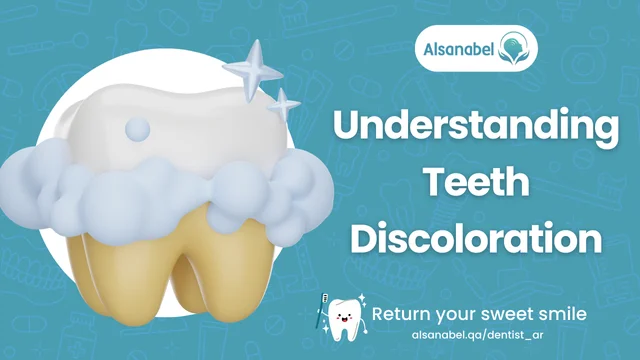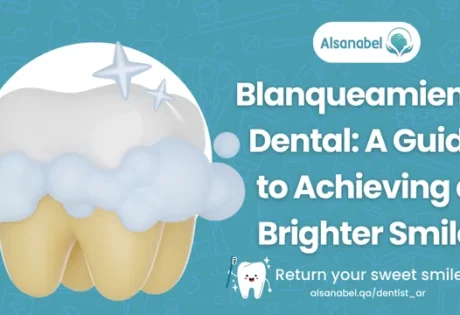
A bright, radiant smile is often associated with confidence and good oral hygiene. Over time, teeth can become discolored due to various factors such as diet, lifestyle habits, and aging. This is where teeth whitening treatments come in to restore a youthful and fresh appearance to your smile. Whether you’re considering at-home treatments or professional dental whitening, understanding the different methods available is essential to achieving the best results.
In this guide, we’ll explore the most effective ways to achieve smile brightening, including Tooth bleaching options, their safety, and how long the effects typically last. By the end of this article, you’ll have a clear understanding of how to enhance your smile and maintain its brilliance.
Understanding Teeth Discoloration
Before diving into teeth whitening solutions, it’s important to understand what causes discoloration. Teeth can lose their brightness due to both extrinsic and intrinsic factors.

1. Extrinsic Stains (Surface Stains)
- Caused by external substances like coffee, tea, red wine, and tobacco.
- Accumulate over time, making teeth appear yellow or dull.
- Can often be removed with professional cleaning and dental whitening treatments.
2. Intrinsic Stains (Internal Stains)
- Occur due to aging, certain medications, or excessive fluoride exposure.
- These stains are deeper within the tooth and may require stronger Tooth bleaching treatments.
3. Age-Related Discoloration
- As we age, the enamel wears down, revealing the naturally yellow dentin underneath.
- This type of discoloration can be improved with brightening treatments.
Methods for Teeth Whitening
There are multiple approaches to achieving a whiter smile, ranging from professional treatments to at-home solutions. Here’s a breakdown of the most effective options:
1. Professional Whitening
This is the most effective and fastest way to achieve noticeable results. Conducted by a dentist, it involves using high-concentration Tooth bleaching agents.
- Laser Whitening: Uses light-activated whitening gel to accelerate the whitening process.
- Custom Tray Whitening: Involves personalized trays filled with bleaching gel that fits your teeth perfectly.
- In-Office Bleaching: A single session of professional whitening can lighten teeth by several shades.
Pros:
✅ Quick and effective results
✅ Supervised by a dentist
✅ Longer-lasting effects
Cons:
❌ More expensive than at-home options
❌ May cause temporary sensitivity
2. At-Home Whitening Kits
Many people opt for over-the-counter whitening kits as an affordable alternative to professional Teeth bleaching.
- Whitening Strips: Thin strips coated with Tooth bleaching gel that adhere to the teeth.
- Whitening Toothpaste & Mouthwash: Contain mild abrasives and hydrogen peroxide to gradually lighten stains.
- LED Whitening Kits: Use light technology to enhance whitening effects.
Pros:
✅ More affordable than professional treatments
✅ Easy to use at home
Cons:
❌ Takes longer to see results
❌ May not be as effective for deep stains
3. Natural Whitening Remedies
For those looking for chemical-free options, some natural remedies may help remove surface stains.
- Baking Soda & Hydrogen Peroxide: A mild abrasive that can aid in brightening.
- Activated Charcoal: Absorbs toxins and surface stains.
- Oil Pulling: Swishing coconut oil in the mouth is believed to help remove bacteria that cause yellowing.
Pros:
✅ Budget-friendly
✅ Gentle on teeth
Cons:
❌ Results take longer to appear
❌ May not be as effective as professional Tooth bleaching
Is Teeth Whitening Safe?
A common concern for many individuals considering dental whitening is its safety. The good news is that most Teeth bleaching treatments are safe when used correctly. However, there are a few important factors to consider:
1. Tooth Sensitivity
- Some people may experience temporary sensitivity to hot or cold foods after Tooth bleaching.
- Using a desensitizing toothpaste can help alleviate discomfort.
2. Gum Irritation
- If the Tooth bleaching gel comes into contact with the gums, it can cause mild irritation.
- Professional treatments often include protective measures to prevent this issue.
3. Overuse Risks
- Excessive use of whitening products can lead to enamel erosion and increased tooth sensitivity.
- It’s essential to follow the recommended usage guidelines.
When done correctly, brightening treatments provide a safe and effective way to enhance your smile without long-term damage.
How Long Does Whitening Last?
The longevity of Teeth whitening results depends on several factors, including lifestyle choices and oral hygiene habits.
Factors That Affect Longevity
- Dietary Habits – Coffee, tea, red wine, and dark-colored foods can cause teeth to stain again.
- Oral Hygiene – Regular brushing and flossing help maintain the effects of Tooth bleaching.
- Smoking & Tobacco Use – Smoking significantly shortens the lifespan of whitening results.
Expected Duration of Different Whitening Methods
- Professional Whitening – Can last between 6 months to 3 years with proper care.
- At-Home Kits – Effects may last a few months and require frequent touch-ups.
- Natural Remedies – Gradual results that require consistent use.
To maintain results for as long as possible, avoid stain-causing foods and beverages and use a whitening toothpaste.
Cost of Teeth Whitening
The cost of Tooth whitening varies based on the method chosen:
| Whitening Method | Approximate Cost |
|---|---|
| Professional In-Office Whitening | $300 – $1000 |
| Take-Home Whitening Kits from Dentist | $150 – $400 |
| Over-the-Counter Whitening Kits | $20 – $100 |
| Whitening Strips & Toothpaste | $10 – $50 |
Professional treatments provide the most dramatic results, while at-home options are more budget-friendly but take longer to show improvements.
Frequently Asked Questions

1. What Is Teeth Whitening?
It is a cosmetic procedure that removes stains and discoloration from teeth using Teeth bleaching agents or other brightening techniques.
2. Is Teeth Whitening Safe?
Yes, when done correctly, dental whitening is safe. However, overuse can lead to tooth sensitivity or gum irritation.
3. What Are the Methods for Teeth Whitening?
Options include professional Teeth bleaching, at-home whitening kits, whitening strips, and natural remedies.
4. How Long Does Teeth Whitening Last?
Results typically last from several months to a few years, depending on diet, oral hygiene, and habits like smoking.
5. What Are the Costs for Teeth Whitening?
Costs vary based on the method used, ranging from $10 for whitening toothpaste to $1000 for professional dental whitening.
A bright and white smile can boost self-confidence and enhance overall appearance. Whether opting for professional Tooth bleaching or at-home remedies, understanding the different methods ensures you choose the best option for your needs. By maintaining good oral hygiene and making smart lifestyle choices, you can prolong the effects of dental whitening and keep your smile looking fresh for years to come.

